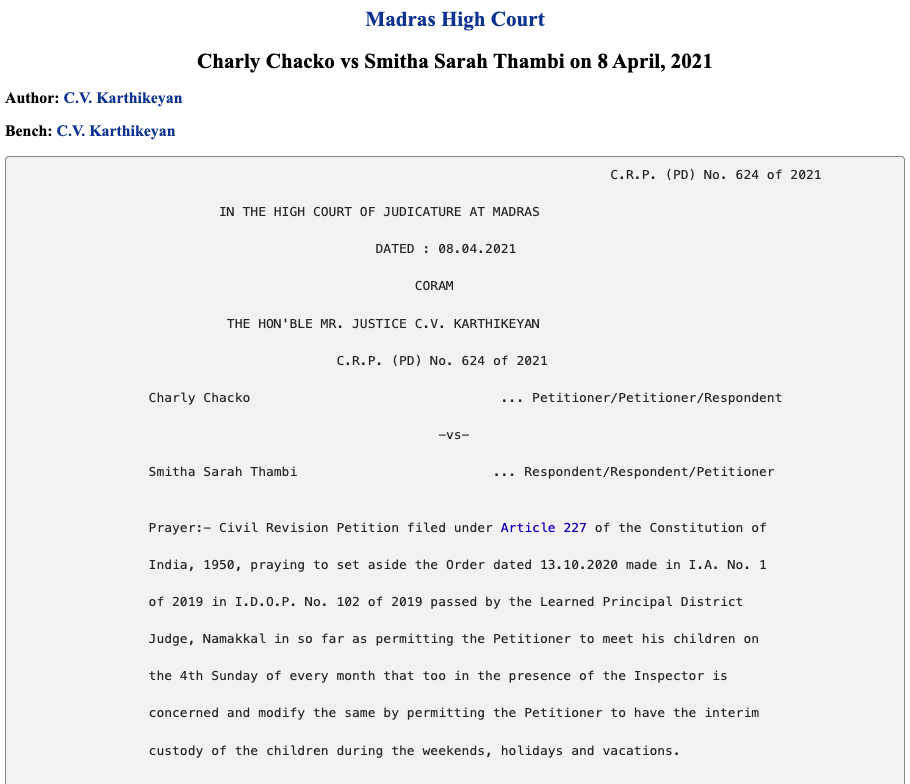Introduction:
The case of Charly Chacko vs Smitha Sarah Thambi pertains to a Civil Revision Petition (C.R.P.) filed under Article 227 of the Constitution of India, 1950. The petitioner seeks to set aside an order concerning the interim custody of children issued by the Learned Principal District Judge, Namakkal.
Background:
The petitioner, Charly Chacko, filed an application (I.A. No. 1 of 2019) under Section 41 of the Indian Divorce Act, 1869, seeking interim custody of his minor children. The Principal District Judge, Namakkal, permitted the petitioner to meet his children on the 4th Sunday of every month, under the supervision of the Inspector of Police, All Women Police Station, Tiruchengode. Dissatisfied with this arrangement, the petitioner filed the current Civil Revision Petition.
Key Arguments:
Mr. S.Sathish Rajan represented the petitioner, while Mr. Caldwell Justine represented the respondent. The petitioner’s counsel argued against the arrangement of meeting the children at the police station, highlighting its adverse effects on the children’s well-being and the discomfort it caused both parties.
Court’s Observations:
Both counsels acknowledged the unsuitability of conducting visits at a police station for the children’s welfare. The court recognized the potential psychological impact on the children and the inconvenience faced by both parties. Consequently, the court deemed it necessary to alter the existing arrangement.
Court’s Decision:
The court modified the order, permitting the petitioner to meet his children on the 4th Saturday of every month at the premises of the Legal Service Authority in the District Court Complex at Namakkal. The court instructed the Learned District Judge to appoint a responsible officer, if necessary, to oversee the interaction between the petitioner and his children.
Conclusion:
With the alteration made to the original order, the Civil Revision Petition was disposed of. The court emphasized the importance of ensuring a conducive environment for the interaction between the petitioner and his children, prioritizing their welfare and psychological well-being. No costs were imposed in the matter.
